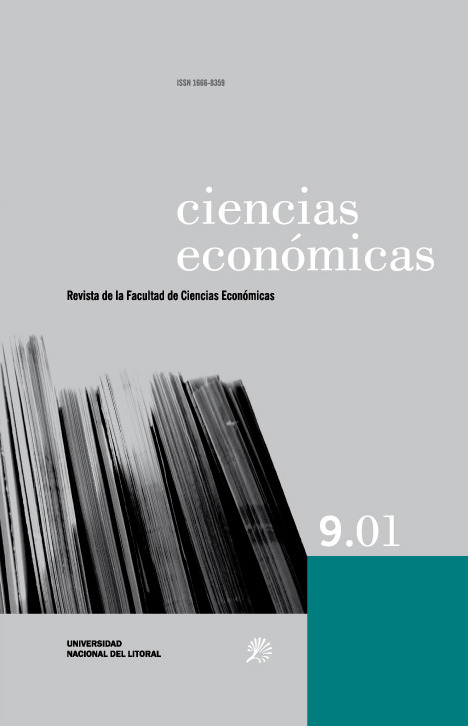Analysing impacts of the economic crisis on the pre–start ups process of business students in Germany.
DOI:
https://doi.org/10.14409/ce.v1i14.1157Palabras clave:
Pre–start–up process, Entrepreneurship, Business Students, Germany, Economic CrisisResumen
The article is part of the empirical research project “Starting up Businesses and Entrepreneurship by Students” (GESt–study) and analyzes potential impacts of the economic crisis on the pre–start–up process of business students surveyed before and during the downturn at four German universities (of applied sciences), what supports the advancement of entrepreneurship education and support within two different macroeconomic contexts. Though in Germany recessions typically animate more persons to self–employment, these business start–ups are mostly based on necessity–driven entrepreneurship. But particularly opportunity entrepreneurship has positive effects on economic growth and employment. Whereas no significant differences can be detected regarding their start–up propensities, the economic crisis indeed has heightened the intended start–up time as well as the necessity–driven start–up motivation of the surveyed business students, but not their start–up motivation from economic self–realization. Therefore, self–employment as vocational alternative has to be highlighted stronger and entrepreneurial basic knowledge has to be taught adequately to the students so that they are able to mature as potential entrepreneurs at their universities – the location where specialized knowledge about their subsequent professionalism is imparted – what facilitates them to generate future innovations accompanied by enduring and high–skilled employment.Descargas
Publicado
Cómo citar
Número
Sección
Licencia
El contenido es licenciado bajo Licencia Creative Commons Atribución-NoComercial-CompartirIgual 4.0 Internacional.

El contenido de los artículos a presentar deberá ser inédito y no estar en trámite, o haber sido enviado para su publicación a otro medio.
Los contribuyentes con trabajos a Revista Ciencias Económicas ceden todos los Derechos del Autor a la Revista. Esta transferencia se hace efectiva desde el momento que el autor recibe por escrito la confirmación de la aceptación de su trabajo para ser publicado.
La Propiedad intelectual del trabajo científico publicado permanece en el autor (o los autores).
El autor puede sostener su copyright sin restricciones.
Los artículos que sean aceptados, deberán ser acompañados del documento Autorización de publicación que contiene la firma de los autores, en donde se acepta la originalidad del documento y autorizan a la Revista a la publicación del mismo.
Los autores son responsables por el contenido científico y los puntos de vista expresados, los cuales no necesariamente coinciden con los del equipo editorial.















